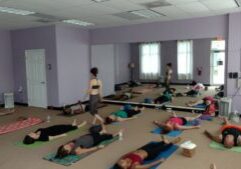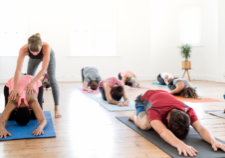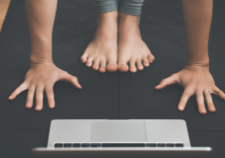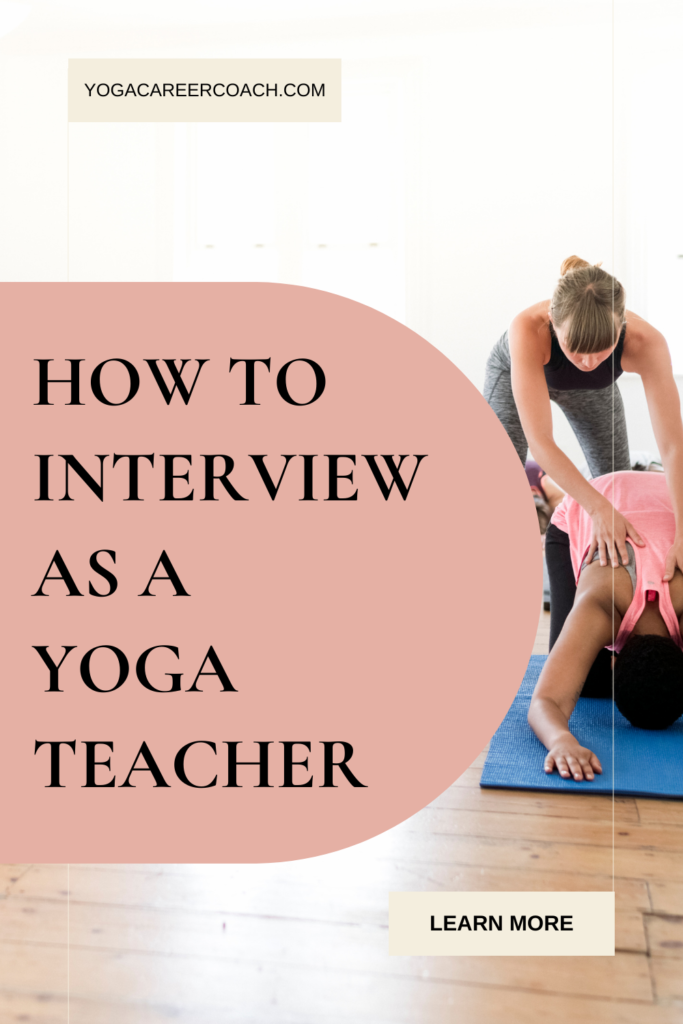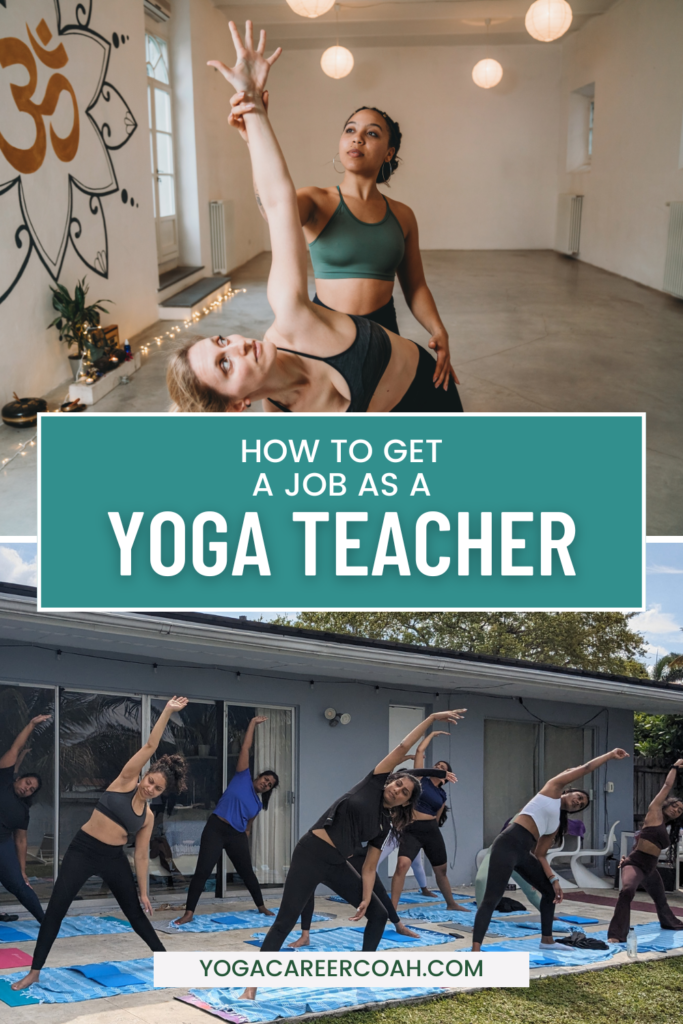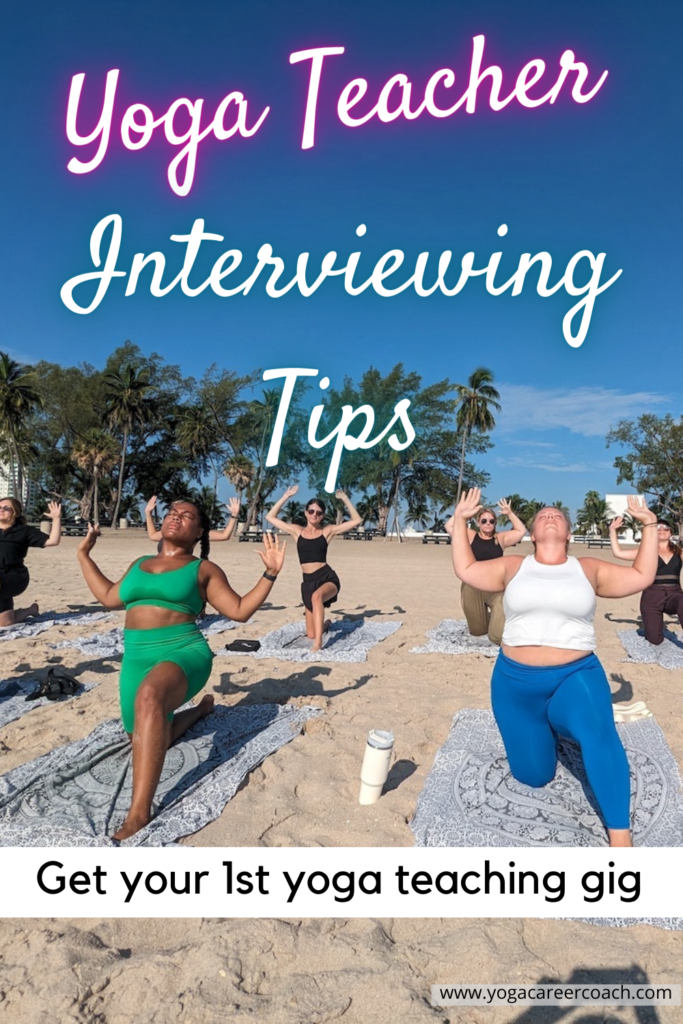How to Interview as a Yoga Teacher
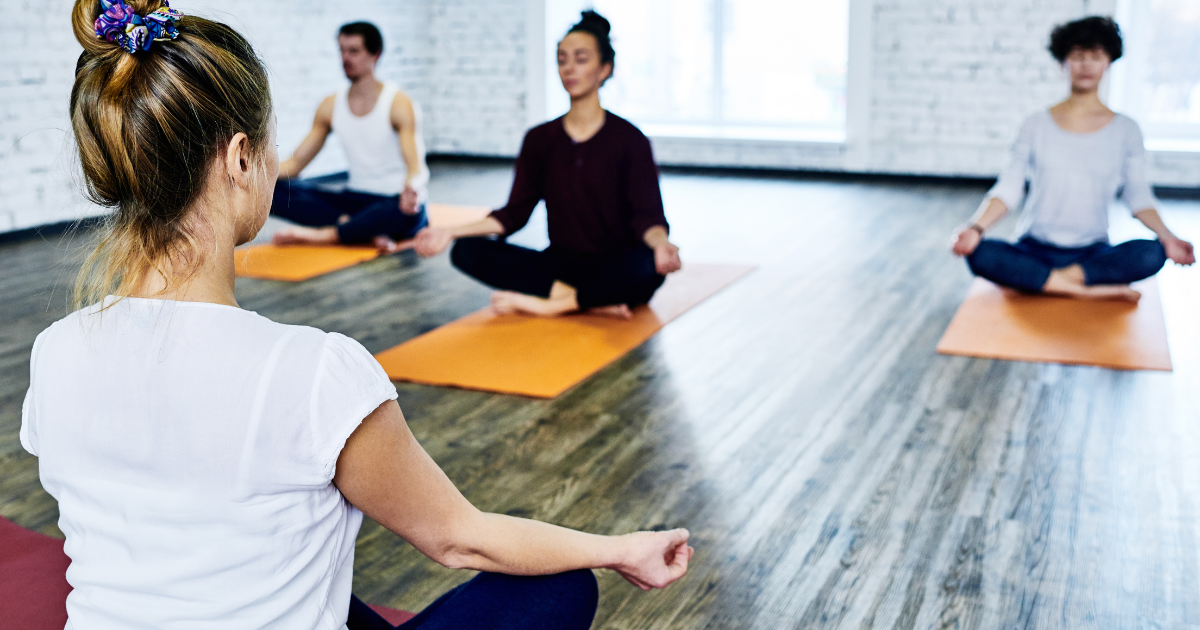
An important part of landing your dream job as a yoga teacher is acing the interview process and with a yoga teacher interview there’s normally a demo that’s required as well and sometimes even more important than just the interview itself.
So, learn to set yourself up for success by having a great resume, preparing for your interview, and practicing your demo.
Research the Position, Company, and Team
First, you’ll want to do a little research on the studio or gym that you are interviewing at. Get on their site, look around and check out the about page so that you can get the feel and vibe of the studio.
If possible try to take a class or two there ideally with the owner if that’s available, this way you can see what the culture of the studio is, what the community is like, and the teaching styles present there. While doing this, think about what you like and how you can contribute.
You also need to review the job description thoroughly. Pay attention to what they need in a yoga teacher - are they after a specific style or level of expertise? Identify which personal skills you possess that align well with what they're looking for.
Remember an interview works both ways, so as you’re doing your research see if and how you can fit into this job and space.
Get Your Yoga Documents Together
The documents you’ll want to prepare are your resume, cover letter, and certifications. If you have any samples of your teaching include these video supplements as well.
Resume
Your resume is your first impression. Keep it clean and simple, highlighting your skills, previous relevant jobs, and certifications.
Scrap the objective portion and give a one sentence overview of your skills. For example, instead of “seeking position as a yoga instructor” try “RYT-200 yoga instructor specializing in vinyasa and power yoga”
For your work experience make the description quantifiable or describe the specifics of your teachings in that place.
For example, instead of “taught vinyasa yoga” instead try “helped over 100 students learn the foundations of a vinyasa yoga practice”.
Include your social handles if you are active on there with your yoga teaching, and definitely include your website if you have one (you should have one).
Certifications and Cover Letters
Prepare copies of your certification along with any other relatable skill you may have like your CPR certification or any other fitness or specialized yoga certifications.
Writing a cover letter shows that you are serious and passionate about the position because you’re taking the time out to include this extra piece of information to get to know you better.
Try not to just repeat what’s in your resume and write a cookie cutter cover letter. Make your cover letter personalized to the studio and the job description. Use your research into the studio or gym to add personalized detail. For example if you see that they’ve done sound healing workshops at the studio mention your connection with sound healing. If you were able to take some classes at the studio before, write about your experience, why you enjoyed it and why you think you would contribute to the team and culture of the yoga studio.
Bonus if you have any relevant videos and clips of your teaching or workshops include this as well.
Giving as many relevant well crafted documents up front will set you up for success and give you the best chance of landing an interview.
Preparing for Interview Questions
During your interview you’re going to be asked about your yoga certification, experience, teaching style, yoga philosophy, your schedule and they may ask how you'd handle classes with mixed abilities. You may also be asked about your longer term career goals and your continuing education. Spend some time reflecting on these questions and prepare thoughtful answers.
Think about how all these areas can benefit and mesh with the studio’s culture and community.
Be confident in your delivery, have good posture, and use a clear voice. Remember to always be yourself!
Also, remember that an interview is going both ways. Prepare some interview questions you want to ask the hiring manager. Ask about the culture of the studio, ask about what is expected from their instructors; do you need to arrive early, sign people in, stay to clean; this is all information you’ll want to know.
You want to mesh well and be happy in this space, so ask about the studios philosophies and see if they fit well with your philosophy and style and if you’d want to work in a place like this. You’ll also want to know if there are opportunities for growth within the studio or gym.
Ask what kinds of classes they are looking for and highlight which of those styles you teach.
Preparing for Your Yoga Demo
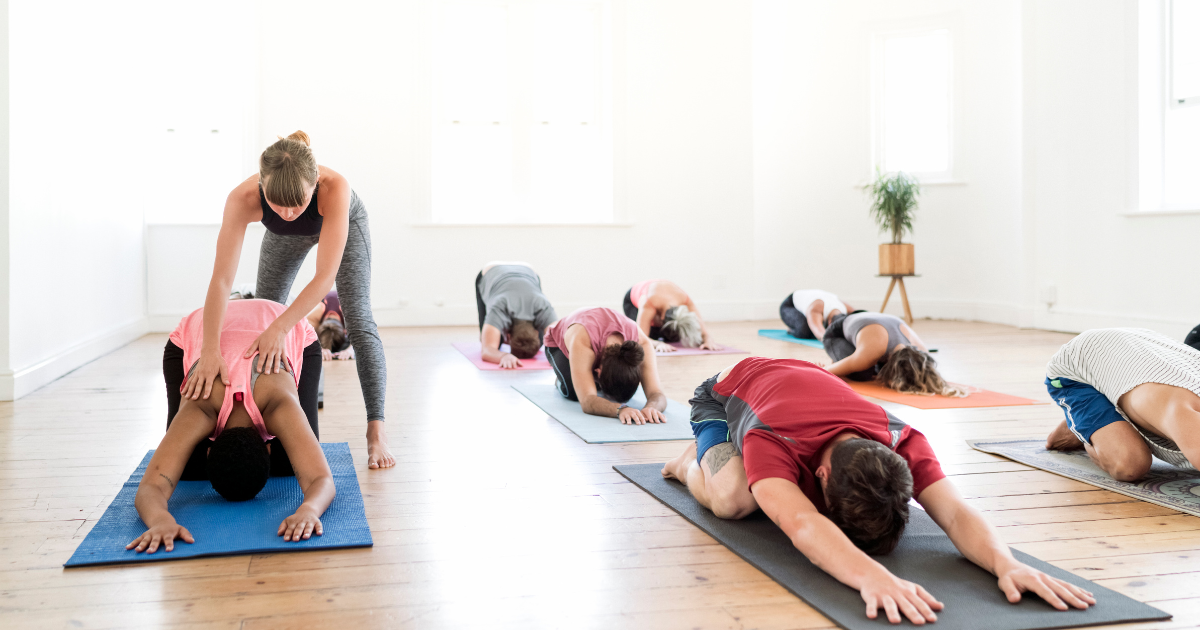
Since yoga is a physical practice you’ll most likely be asked to demonstrate your teaching skills. Even virtual interviews may include a demo section. If you’re having a virtual interview ask prior to the meeting if you’re expected to do a demonstration, if so wear the appropriate clothing and make sure you have a space set up for the demonstration, so you can easily transition from up close speaking to full body floor movement.
Demos usually range from 10 - 60 minutes. Ask ahead of time how long the demo is expected to be, there is a big difference between 10 minutes and 1 hour so you don’t want to get caught off guard the day-of.
Once you know how long the yoga demo is going to be, you want to start thinking about how you can get a concise practice into the allotted time frame. You’ll still want to include all aspects of teaching, intro, breathwork, asana, mindfulness, hands on assists, and savasana. For a shorter time frame, try doing a sequence of just 1 side so that you can still show multiple postures.
Do what you’re good at in your demo, this isn’t the time to be trying something new or making up a brand new complicated sequence. Show your best self and demonstrate the skills that you know you can do well.
Deciding on which style to teach during your demo is really up to you. If the job description is for a certain style of yoga, of course that’s the style you’ll want to be teaching. If there isn’t any specific style listed, then again do what you are good at and what you enjoy teaching. For a shorter interview it may not be an option to demonstrate yin or restorative since those practices require much more time for each posture. Whichever style of yoga you decide to demonstrate, tell your interviewer so they know what to expect.
Treat the demo like any other class, whether you have an audience or it’s just you doing the demonstration. This is going to probably be the most important part of your yoga interview and can make or break you getting the teaching job.
Salary and Benefits Questions
Talking about salary is anxiety inducing for most people, especially yoga teachers. Yoga teachers want their work to be about the work and the yoga practice, but to make yoga your career we need to know about the pay, yoga teachers should still be making a livable wage.
You aren’t going to ask about pay up front, make most of the interview about everything we’ve already discussed and hopefully the hiring manager will bring up the pay and benefits without you having to ask.
If you end up having to be the one to bring up pay and benefits, let it be towards the end of the interview questions and the end of the questions that you have for them. Then, confidently ask what the pay structure of the classes are. After you’ve discussed this portion, bring up if instructors are able to practice in the studio and what their policies on that is.
Non-Compete
Some studios and gyms have a non-compete and a non-solicitation agreement for their yoga teachers. A non-compete may be that you are not allowed to work both for the particular studio you’re interviewing for and a nearby establishment. A non-solicitation agreement is that you aren’t allowed to advertise your own side business, private classes, workshops, or retreats to the students and clientele of that studio.
You’ll want to be clear on these so that you can think about if that works for you and so that you won’t be breaking any agreements when you do get hired as a yoga instructor there.
After the Interview
Sending a Post-Interview Thank You Note
After the interview, it’s a good practice to send a thank you note to the interviewer. This doesn’t need to be a handwritten note, although that would be an added special touch since people don’t really write notes anymore. You can send this in an email or text message, whatever way you were communicating with the owner or manager before the interview.
Add a personal touch to the note, speak on something you both had in common or they seemed interested in during the interview process. Highlight your interest in the yoga teaching position and appreciation for their time.
Space for Growth
It’s a great practice to take some time to reflect after an interview and demo. Think about what went well, what could’ve gone better and you can learn from the whole thing. Don’t do this from a self-critical lens, but more from a curiosity lens and growth lens.
Interviewing for yoga teaching jobs is a great opportunity for growth and can only work in your favor, even if you don’t get the position. You put yourself out there, you practiced your teaching, you practiced interviewing, and you are more prepared for the next time.
Don’t be shy to ask for feedback from the interviewer if you don’t get hired, this way you can know what went wrong from their perspective and you can pivot.

